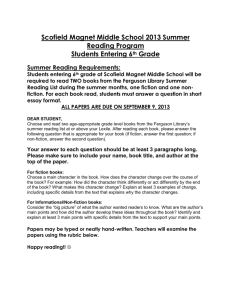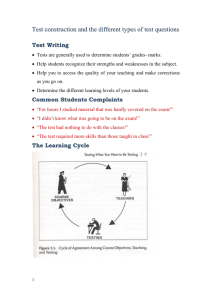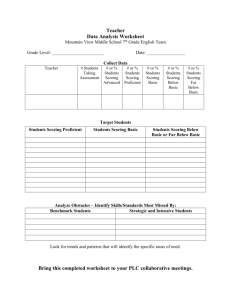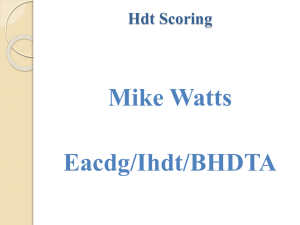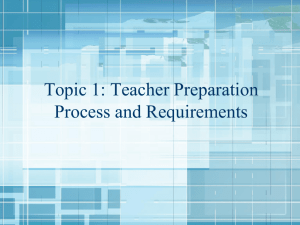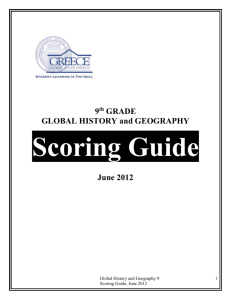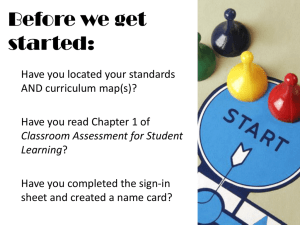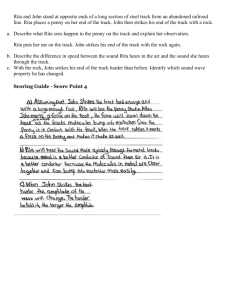Performance Task for English Language Arts
advertisement
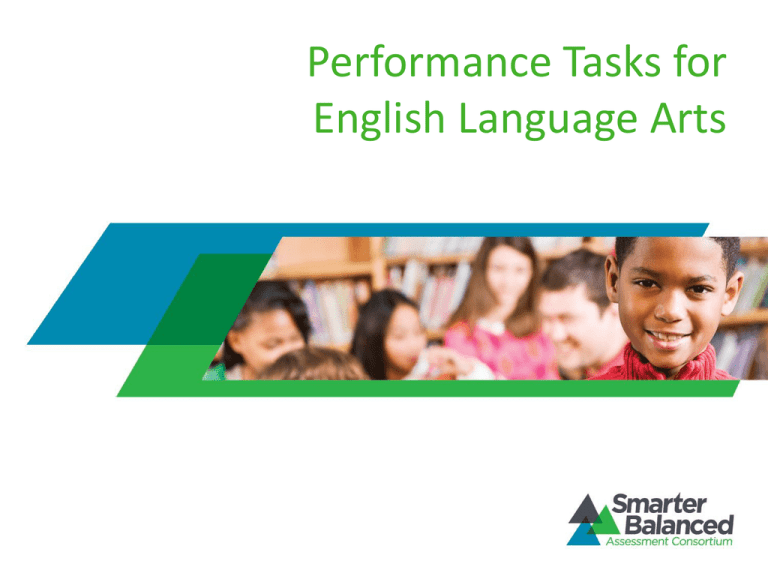
Performance Tasks for English Language Arts Performance Tasks • • • • • Measure complex assessment targets Demonstrate ability to think and reason Higher-order skills Produce fully developed writing or speeches Provide evidence of college and career readiness Performance Tasks Benefits • • • Multiple approaches Use real world contexts Common language around learning Limitations of Performance Tasks • • Administration time Human scoring General Guidelines for Developing Performance Tasks • • • • • • • Integrate knowledge and skills Measure understanding, research skills, analysis, and the ability to provide relevant evidence Require student to plan, write, revise, and edit Reflect a real-world task Demonstrate knowledge and skills Allow for multiple points of view Feasible for classroom environment Combinations of Claims and Targets Measured • • • • • Writing-narrative, research, possibly reading Writing-informational/explanatory, research, possibly reading Writing-argumentative, research, possibly reading Writing-opinions, research, possibly reading Speaking, research, reading, listening General Specifications for Performance Tasks • • • • • Allowable teacher and peer interactions and group work Organization of complex task directions Vocabulary Simulated Internet access Rubrics Design of Performance Tasks • • • Stimulate cognition Process information Produce extended response Design of Performance Tasks • Use 1-2 Stimuli for Grade 3. Use up to 5 stimuli for high school. Emphasis on stimuli related to science, history, and social studies. Components of a Performance Task Stimulus Readings Information Processing Research questions Video clips Audio clips Graphs, charts, other visuals Research topic/issue/ problem etc. Comprehension questions Simulated Internet search Product/Performance Essay, report, story, script Speech with/without graphics, other media Responses to embedded constructed response questions. etc. etc. Parts of Performance Task • • Part 1: Student reads research sources and responds to prompts (Claim 1 or 4) Part 2: Student plans, writes, and revises his or her full essay (Claim 2) or plans and delivers a speech (Claim 3) Test Administration • Maximum Time Requirements for Performance Tasks – Grade 3–8: • 105 minutes total Part 1: 35 min. Part 2: 70 min. – High School: • 120 minutes total Part 1: 35-45 min. Part 2: 75-85 min. Sample Performance Task Directions Part 1 Part 2 Scoring Information • How your essay will be scored: The people scoring your essay will be assigning scores for: – Statement of purpose/focus—how well you clearly state your claim on the topic, maintain your focus, and address the alternate and opposing claims – Organization—how well your ideas logically flow from the introduction to conclusion using effective transitions, and how well you stay on topic throughout the essay – Elaboration of evidence—how well you provide evidence from sources about your opinions and elaborate with specific information – Language and Vocabulary—how well you effectively express ideas using precise language that is appropriate for your audience and purpose – Conventions—how well you follow the rules of usage, punctuation, capitalization, and spelling Grade 6 Sample Performance Task Scoring Criteria • • Scoring rubrics Sample response and scoring notes Scoring Criteria Guidelines for Writing Performance Tasks • • • • • Align parts of the task Parts build to “full write” or speech Develop rubric for each assessment target Develop exemplars for each rubric Allow multiple approaches

